Maulana Zafar Ali Khan (1873-1956)

Writer, journalist and politician, Maulana Zafar Ali Khan belonged to a learned family of Karamabad district, Gujranwala, Punjab. He received his early education in Wazirabad and Patiala.
After completing his intermediate at Aligarh, he joined the postal department of the state of Jammu and Kashmir but resigned over a row with his seniors.
He rejoined the Aligarh College, graduated, and served as private secretary to the vice-chancellor of the college, Nawab Mohsinul Mulk, who sent him to Darul Tarjuman at Hyderabad Deccan. Although he did sizable translation work there, he left for Bombay after developing differences with the Home Secretary of Deccan Nawab Sarbuland.
Maulana Zafar Ali came back to Deccan after going through a series of unsuccessful business ventures in Bombay. He launched the magazine, The Deccan Review, which soon earned him fame.
At that time his father was editor of weekly Zamindar that was being published from Lahore. The weekly played a prominent role in Pagri Sambhal Jutta Movement aimed at asserting the rights of farmers in colonized areas.
Following his father’s death, Maulana Zafar Ali Khan moved to Lahore and took over Zamindar which became mouthpiece for Muslim anti-colonial politics. He joined the All-India Congress Committee and emerged as a fiery and powerful commentator.
While his agitational attitude earned him popularity, it also resulted in multiple incarcerations. During his time in jail, he composed some powerful devotional poetry. During this period he was a bitter critic of the All-India Muslim League. But when the Sangathan/Shuddhi movements began to gain popularity, he started harboring doubts about Congress’ Hindu leadership. And in 1945-46 he was elected to the Central Legislative Assembly as a Muslim League nominee. He was a key agitator in the Shahidgunj Mosque dispute and several other anti-British movements.
Maulana Zafar Ali penned 30 books, including seven collections of poetry, most notably: Baharistan, Nigaristan and Chamanistan. Some of his other well-known works are: Marka-e-Mazhab-o-Science, Ghalba-e-Rum, Sayr-e-Zulmet, and an opera Jang-e-Roos-o-Japan.
Source: The Oxford Companion to Pakistani History
Photo courtesy: http://farzana.wordpress.com/
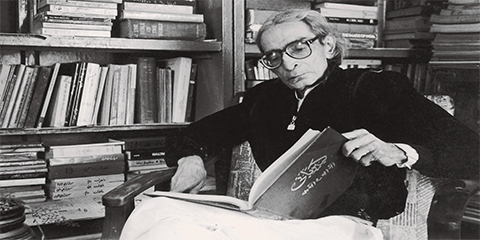
Zamir Niazi (1932-2004)
Zamir Niazi was a renowned Pakistani journalist, famous for his commitment to the freedom of the press. He worked for Dawn, Daily News and Business Recorder and also edited the monthly Recorder and the weekly Current.
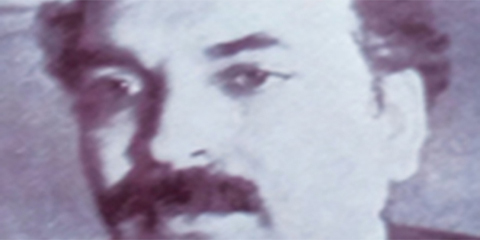
Maulana Salahuddin Ahmad (1902-1964)
Maulana Salahuddin Ahmad, editor of one of the most prestigious journals, Adabi Dunya, was born on March 25, 1902. According to Rauf Parekh, he was not 'Maulana' in the sense that the word is
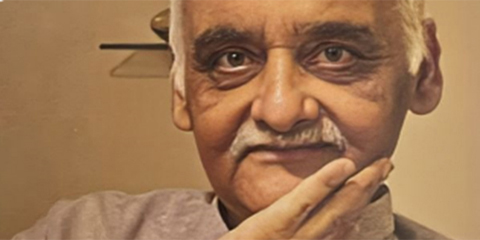
Gul Hameed Bhatti (1947-2010)
Gul Hameed Bhatti was a top ranked cricket journalist and statistician. He also loved flying and was a commercial pilot with the Pakistan International Airlines between 1968 and 1971.
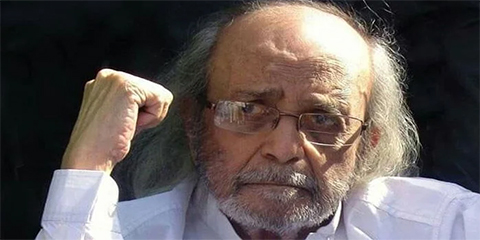
Saleem Asmi
Beginning his journalistic career in 1959, Saleem Asmi joined The Times of Karachi as a sub-editor. Like most journalists from his era, he became part of The Pakistan Times, becoming the newspaper's city editor.
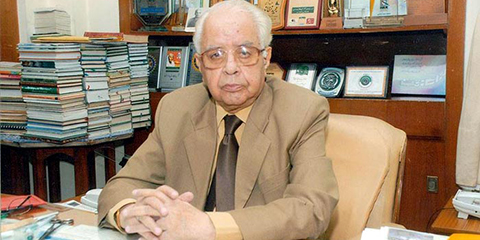
Majid Nizami (1928-2014)
Editor-in-chief and publisher of Nawa-i-Waqt, Majid Nizami was in the field of journalism for almost half a century. He was born in Sangla Hill in Sheikhupura, Punjab, and got his early education
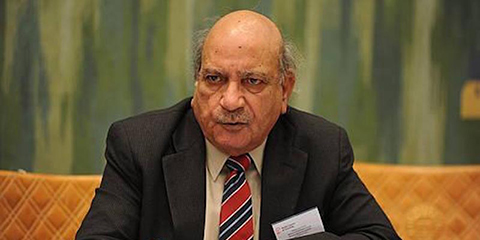
I A Rehman
A senior journalist and human rights activist, I A Rehman is known for his outspoken views. He served as editor-in-chief of The Pakistan Times from 1989-90. Since 1990 he has been serving as a director

Mazhar Ali Khan (1918-1993)
Mazhar Ali Khan served as the Editor-in-Chief of the newspapers Pakistan Times from 1951 to 1959, Dawn in 1972, and the journal Viewpoint. He graduated from the Punjab University in Lahore in 1939
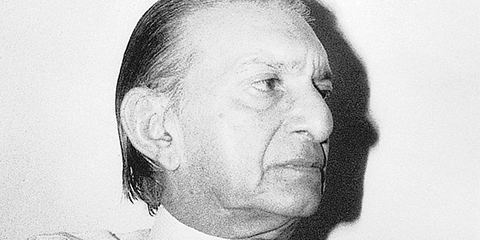
Omar Kureishi (1928-2005)
Omar Kureishi was a distinguished Pakistani writer. He worked in advertising, aviation and journalism, writing for many newspapers, including Dawn, The Pakistan Times, Morning News and The Guardian, London.
Newsroom

Publishers turn to three-pillar revenue models
January 20, 2026 Publishers are adopting a three-pillar revenue model comprising advertising, subscriptions, and services to stabilize their finances and safeguard editorial independence.

How to spot a credible news story in 2026
January 19, 2026 Guidance for readers to identify credible news in 2026 by checking AI disclosures, source transparency, verification practices and editorial oversight.

Pakistan escalates in absentia convictions against overseas journalists
January 19, 2026 Pakistan has escalated in absentia convictions and arrest warrants against overseas journalists, intensifying a crackdown on exiled critics, according to CPJ.

CBS airs previously shelved 60 Minutes Cecot prison report
January 19, 2026 CBS aired a shelved 60 Minutes report on El Salvador's CECOT prison, reigniting debate over editorial independence and alleged migrant abuses.

Bangladesh journalists fear heightened threats ahead of 2026 polls
January 19, 2026 A study finds Bangladeshi journalists expect heightened physical and digital threats ahead of the 2026 elections, citing safety gaps and weak newsroom support.












